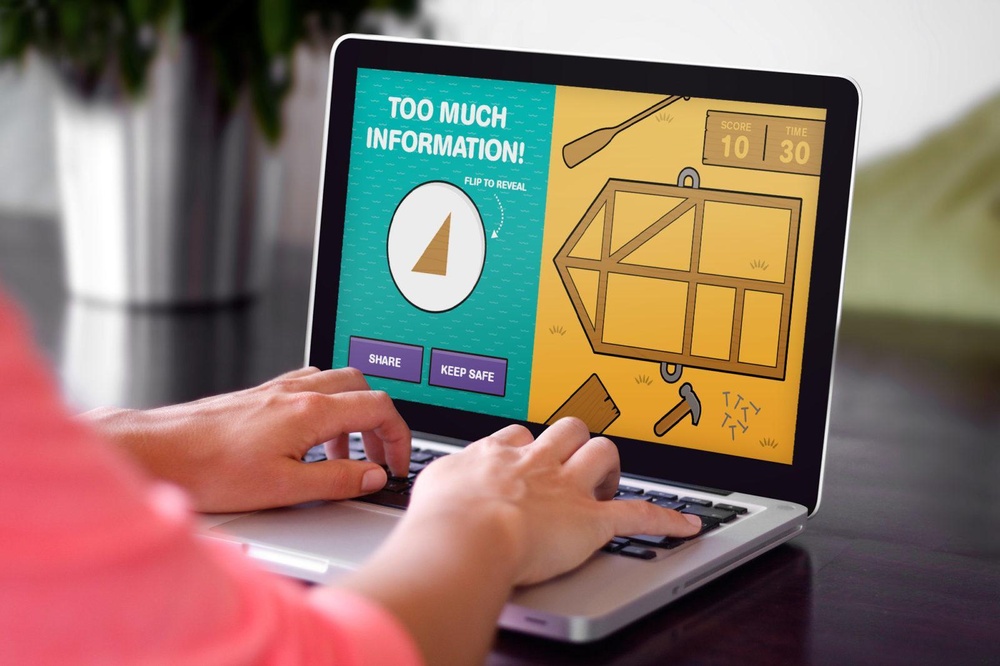8 reasons to use games in workplace learning

Learning games are going to have an increasing impact in the workplace. As we enter the Fourth Industrial Revolution, the growth and prosperity of organisations – and even national economies – will be dependent on introducing new technologies in the workplace. And workplace training has to step up.
Don’t just take our word for it. The UK Government has just published its independent, industry-led ‘Made Smarter Review’, which says using advanced digital technology and upskilling and reskilling the workforce for higher-skilled jobs will provide a massive boost to the economy, particularly manufacturing and productivity. The growth of artificial intelligence, AR, VR, 3D printing and robotics are all part of this revolution.
The review proposes several initiatives, including a workforce upskilling programme, five digital research centres across the UK to improve innovations and capability and a national commission in charge of turning the UK into a global leader in industrial digital technologies.
But business leaders are already warning that the UK needs to “catch up”. To that, we would add “and be quick about it”.
Using emerging technologies in learning doesn’t just make sense because they’re effective; it makes sense because these learning methods reflect the modern workplace and, indeed, the world we’re living in.

So where do learning games fit into this picture?
Research tells us that learning games do work – we looked at this research in a recent insight. And there are plenty of real life examples of where game thinking has impacted business results.
We’ve picked out eight factors that explain why games designed for workplace learning are effective:
- Because games are designed to be engaging, they are more memorable and consequently more effective. The learning ‘sticks’
- Games are experiential: learners actually do the learning
- Games allow the learning to be applied within the experience
- Game mechanics quickly become intuitive
- Scenarios with actual consequences are used within the game setting, which is good for decision-making in a safe learning environment
- Unlike traditional learning which involves linear thinking, games mirror work settings by involving systems and critical thinking
- Games are designed to be re-played, and repeated practice leads to mastery in a topic
- Game learning doesn’t feel like training to the learner. Rather than a chore that must be done, it’s something they want to do.

One of the key benefits of learning games is that they can be delivered equally well on devices or desktop computers. They have ‘reach’ which means important, consistent learning can be rolled out swiftly across workforces, making them extremely cost-effective.
Event better, when they are built ‘bespoke’ to an organisation’s requirements, they can achieve a specific learning outcome linked to a training need. The game should have a start, middle and an end, and all the learning is contained with the game. Just like games designed for pleasure, the aim is to reach the highest level, when the player has shown they’ve acquired the knowledge and can use it.
However, there are occasions when it’s possible to have ‘off the shelf’ games which also focus on a particular learning outcome. Sponge has developed a new learning game designed specifically to embed core GDPR principles across workforces, ahead of the new data protection regulations that come into force in May 2018.
GDPR is a classic example of where compulsory compliance learning could be dull and boring, probably involving thousands of words. No-one will want to do it and they won’t be able to remember it. With a game, not only is the learning more engaging and memorable, it can also be re-visited by the learner and can be updated to reflect any future changes to the regulations.
In the years ahead, learning games will increasingly use technologies such as AR, VR, AI and interactive 360° video to create immersive, relevant, scalable, digestible and intelligent training. Basically, learning that’s fit for purpose in the Fourth Industrial Revolution.
Deborah Baird is a games producer at Sponge.